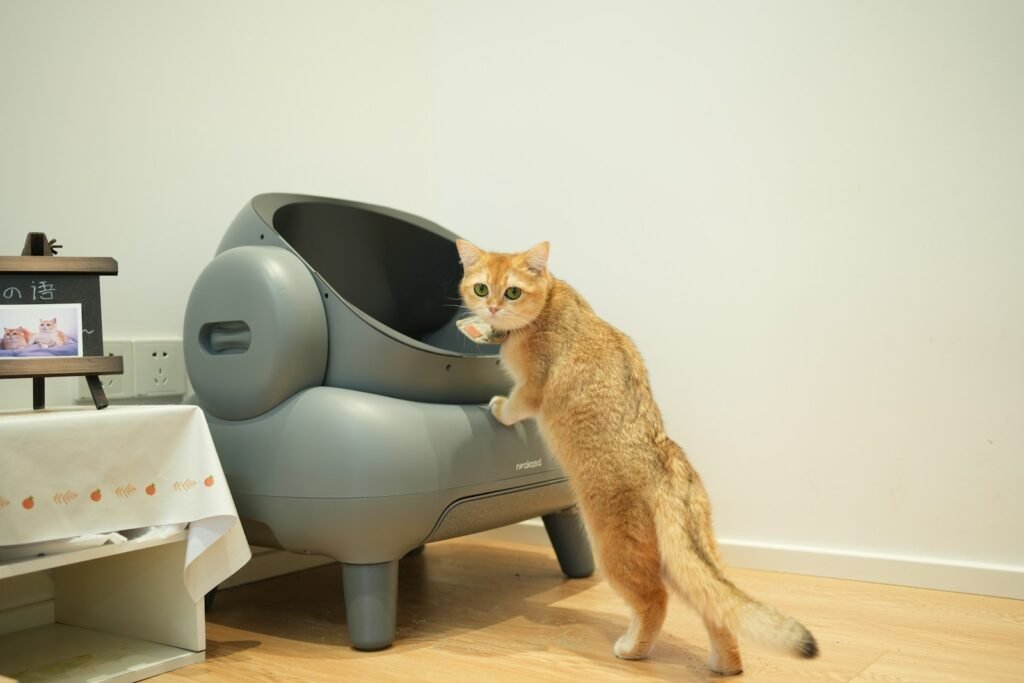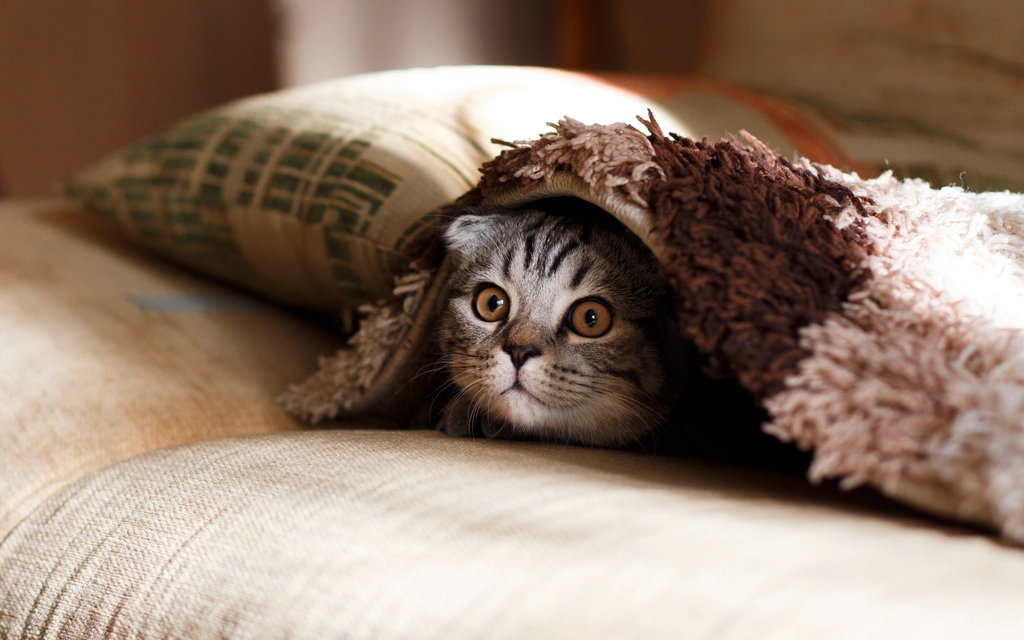Have you ever caught your cat hiding under the bed for hours or suddenly bolting out of the room as if they saw a ghost? The truth is, cats are mysterious little creatures with delicate nerves. While we often think of cats as cool, calm, and collected, their world is packed with stressors—some so surprising, you might just see your feline friend in a whole new light. If you love your kitty, you’ll want to know the everyday things that can send their stress levels through the roof. Ready to be shocked, amused, and maybe even a little inspired? Let’s dive into the secret world of feline stress.
Loud Noises: The Sneaky Sound Traps

Cats have incredibly sensitive hearing. What sounds like a harmless clatter to us can feel like a full-blown rock concert to a cat. Thunderstorms, fireworks, and even a dropped spoon can send them scurrying for cover. The suddenness and volume of these noises shake them right to their core, leaving them anxious and jumpy. You might notice your cat hiding in closets or under beds during noisy events, their ears flattened and eyes wide. It’s heartbreaking to see, especially when you realize how helpless they feel. Even everyday household sounds, like a vacuum cleaner or hair dryer, can be overwhelming. Imagine living in a world where every unexpected sound feels like a natural disaster—no wonder cats crave peace and quiet.
Strangers and Visitors: Unwelcome Guests

A knock at the door can send a cat’s heart racing. For many felines, strangers are viewed with deep suspicion, if not outright fear. It’s not just delivery people or party guests—even a friend popping in for coffee can upset the delicate balance of your cat’s world. Cats thrive on routine and predictability, so the arrival of a new scent, voice, or energy can leave them feeling threatened. Some cats will bravely stand their ground, while others vanish until the coast is clear. Watching your cat slink away during a family gathering can be both funny and a little sad. They’re not being rude—they’re trying to protect themselves from what feels like an invasion.
Other Animals: The Feline Frenemy Factor

Bringing a new pet into the house might seem exciting for you, but for your resident cat, it can be downright traumatic. Whether it’s another cat, a dog, or even a small rodent, the introduction of a new animal upends their territory. Cats are highly territorial creatures, and sharing their space doesn’t come naturally. Even seeing a stray cat outside the window can send your indoor kitty into a frenzy of yowling and tail-puffing. The stress of a new animal can result in hissing, hiding, or even aggressive behavior. It’s like suddenly having a stranger move into your bedroom—most of us wouldn’t be thrilled, either.
Changes in Routine: The Day-to-Day Disruptors

If there’s one thing cats adore, it’s routine. Feed them late or move their litter box, and you might as well have turned their world upside down. Even a small change—like rearranging the furniture or altering your work schedule—can leave your cat feeling off-balance. They rely on predictability to feel safe and secure, and when it’s disrupted, stress levels soar. Some cats react by becoming clingy, while others withdraw completely. It’s a powerful reminder that, for cats, stability is everything. If you’re planning changes, try to introduce them gradually—your feline friend will thank you.
Unfamiliar Scents: The Nose Knows

Cats experience the world as much with their noses as with their eyes. A new perfume, cleaning product, or even the scent of another animal on your clothes can send your cat into a tailspin. Their sense of smell is so sharp that they notice every little change, and unfamiliar scents can cause anxiety and confusion. You might see your cat sniffing suspiciously, backing away, or even marking their territory more aggressively. It’s a fascinating, and sometimes frustrating, reminder of how sensitive cats truly are. For them, scent is a language—and any unexpected “word” can be alarming.
Dirty Litter Boxes: The Unforgivable Offense

If there’s one thing almost all cats agree on, it’s their need for a clean litter box. A dirty box isn’t just unpleasant—it can be a major source of stress. Cats are fastidious by nature, and they’re deeply offended by filth in their personal space. Some cats will simply refuse to use a dirty box, leading to accidents elsewhere in the house. Others may become anxious or even develop urinary issues. It’s a clear message: respect their standards, or face the consequences. Regular cleaning isn’t just polite—it’s essential for your cat’s peace of mind.
Being Left Alone Too Long: The Lonely Hearts Club

Despite their reputation for independence, many cats crave companionship. Being left alone for extended periods can cause deep stress and even lead to destructive behavior. Cats may act out by scratching furniture, excessive grooming, or refusing to eat. The sense of abandonment is real, especially for cats who are particularly bonded to their humans. While a few hours alone is usually fine, regular long absences can chip away at your cat’s sense of security. It’s a poignant reminder that, beneath that cool exterior, your cat might just be missing you more than you think.
Too Much Attention: The Overlove Paradox

While some cats love a good cuddle, others find too much attention downright stressful. Overzealous petting, being picked up repeatedly, or constant hovering can leave a cat feeling trapped and overwhelmed. Cats value their independence, and respecting their boundaries is key to keeping them happy. It’s important to let your cat come to you on their own terms. If you notice your cat flattening its ears or flicking its tail, it’s time to back off. The paradox? Sometimes, loving them less is actually loving them more.
Sudden Movements: The Startle Reflex

Cats are hardwired to react to sudden movements. Whether it’s a dropped fork, a waving arm, or a child darting across the room, abrupt actions can trigger a cat’s startle reflex in an instant. This jumpiness isn’t just about fear—it’s an ancient survival mechanism. In the wild, reacting quickly to movement could mean the difference between life and death. At home, though, it means your cat might be on constant alert, especially in busy households. It’s both endearing and a little sad to see just how easily startled they can be.
Trips to the Vet: The Feline Nightmare

There’s hardly a cat owner alive who hasn’t struggled to coax their pet into a carrier for a vet visit. For cats, the entire experience is loaded with stress. The carrier itself is suspicious, the car ride is bewildering, and the unfamiliar smells and sounds of the clinic are terrifying. Even the calmest cat can transform into a ball of nerves at the vet. It’s a tough reality, but regular checkups are crucial for their health. Offering treats, bringing familiar blankets, and gentle reassurance can help, but nothing truly makes the vet a pleasant outing for your feline friend.
Strong Smells: Scents That Offend

Cats have a powerful sense of smell, and strong odors can overwhelm them. Things like citrus, vinegar, or even some air fresheners are downright offensive to a cat’s nose. You might notice your cat sneezing, shaking their head, or avoiding certain areas. It’s not just a preference—it can actually stress them out, making them feel like their territory is being invaded. Next time you consider lighting a scented candle or using a new cleaner, spare a thought for your cat’s sensitive nose. Sometimes, less is definitely more.
Inconsistent Feeding Times: The Hunger Games

Cats are creatures of habit, especially when it comes to food. Inconsistent feeding times can cause stress, leading to begging, meowing, or even refusing to eat. They look forward to their meals with the regularity of a clock, and any deviation can make them anxious. If you’ve ever been followed around the house by a hungry, vocal cat, you know exactly what this looks like. Keeping a consistent feeding schedule is one of the simplest ways to provide comfort and security for your feline companion.
Moving House: The Ultimate Disruption

Moving is stressful for everyone, but for a cat, it’s the ultimate upheaval. New rooms, unfamiliar smells, and strange noises can leave them feeling lost and scared. Many cats will hide for days after a move, refusing to eat or explore. The process of packing and unpacking, with all its noise and chaos, only adds to their anxiety. It’s important to set up a safe space for your cat as soon as you arrive and introduce them to their new environment gradually. With patience and love, they’ll eventually find their place in the new home.
Boredom: The Silent Strain

Believe it or not, boredom can be a major source of stress for cats. Without enough stimulation, cats can become anxious, depressed, or even destructive. Scratching furniture, overeating, or excessive grooming can all be signs of a bored cat. Enrichment is key—think interactive toys, climbing trees, and daily play sessions. A bored cat is an unhappy cat, and giving them outlets for their energy can make all the difference. Sometimes, all it takes is a little creativity to turn stress into joy.
Lack of Hiding Spots: Nowhere to Disappear

Cats need hiding spots to feel safe. When they’re stressed or overwhelmed, being able to retreat to a quiet, enclosed space is essential. A home with nowhere to hide can leave cats feeling exposed and vulnerable, increasing their anxiety. Whether it’s a cozy box, a blanket fort, or a spot behind the couch, providing safe havens can help your cat self-soothe. It’s a simple gesture, but it means the world to a cat in distress.
Unpredictable Humans: The Wild Card Factor

Cats watch us more closely than we realize, and our unpredictable behavior can be a huge source of stress. Yelling, laughing loudly, or sudden displays of emotion can confuse and scare them. Even small changes in your own mood or routine are picked up by your cat’s sensitive radar. Consistency and calmness in your own actions can help your cat feel more secure. It’s a gentle reminder that, in their eyes, we’re just as mysterious as they are.
Lack of Vertical Space: The High Ground Dilemma

Cats naturally seek high places to observe their surroundings and feel secure. When a home lacks vertical space, such as shelves or trees, cats can become stressed and anxious. They need places to climb and perch, away from perceived threats or disturbances. Without this, cats may become withdrawn or even aggressive. Adding cat trees, shelves, or even letting them explore the top of furniture can make a world of difference. It’s a small change that can transform your cat’s sense of comfort and safety.

Growing up traveling and experiencing new cultures and wonders, I have had a passion for nature, adventuring, photography, and videography. I am currently working towards a BSc in Biodiversity and Ecology at Stellenbosch University, and I hope to specialise in Marine Sciences one day.
Please send any feedback to Feedback@animalsaroundtheglobe.com






